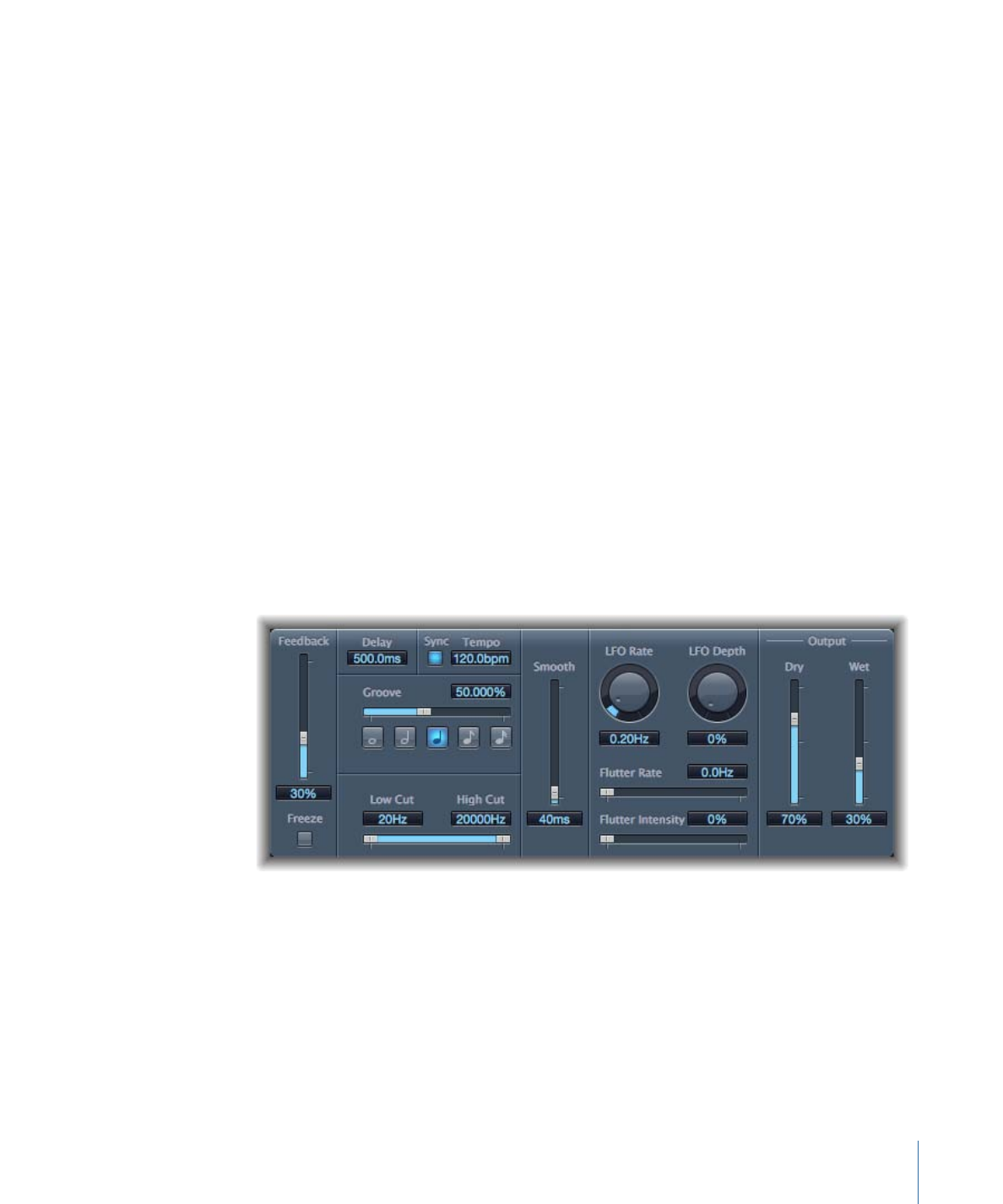
Stereo Delay
The Stereo Delay works much like the Tape Delay (see
Tape Delay
), but allows you to set
the Delay, Feedback, and Mix parameters separately for the left and right channels. The
Crossfeed knob for each stereo side determines the feedback intensity or the level at
which each signal is routed to the opposite stereo side. You can freely use the Stereo
Delay on mono channels when you want to create independent delays for the two stereo
sides.
As the parameters for the left and right delays are identical, the descriptions below only
cover the left channel—the right channel information is provided in brackets, if named
differently. Parameters that are common to both channels are shown separately.
Channel Parameters
• Left (Right) Input pop-up menu: Choose the input signal for the two stereo sides. Options
include OFF, Left, Right, L + R, L − R.
• Left (Right) Delay field: Sets the current delay time in milliseconds (this parameter is
dimmed when you synchronize the delay time to the project tempo).
• Groove slider and field: Determines the proximity of every second delay repeat to the
absolute grid position—in other words, how close every second delay repeat is.
• Note buttons: Set the grid resolution for the delay time. These are shown as note
durations (these are dimmed when the delay time is not synchronized with the project
tempo).
• Left (Right) Feedback knob and field: Set the amount of feedback for the left and right
delay signals.
44
Chapter 2
Echo Effects

• Crossfeed Left to Right (Crossfeed Right to Left) knob and field: Transfer the feedback signal
of the left channel to the right channel, and vice versa.
• Feedback Phase button: Use to invert the phase of the corresponding channel’s feedback
signal.
• Crossfeed Phase button: Use to invert the phase of the crossfed feedback signals.
Common Parameters
• Beat Sync button: Synchronizes delay repeats to the project tempo, including tempo
changes.
• Output Mix (Left and Right) sliders and fields: Independently control the left and right
channel signals.
• Low Cut and High Cut sliders and fields: Frequencies below the Low Cut value and above
the High Cut value are filtered out of the source signal.